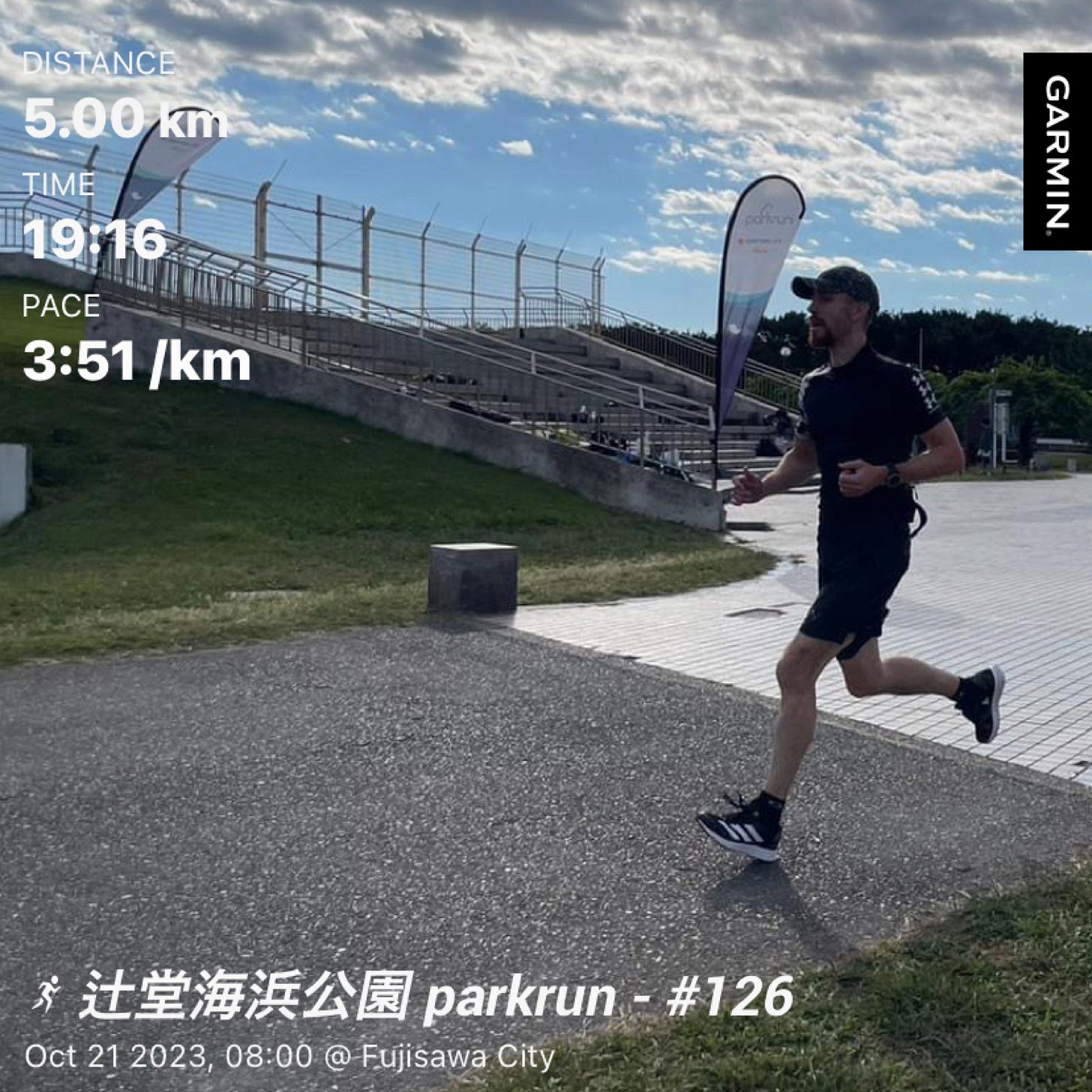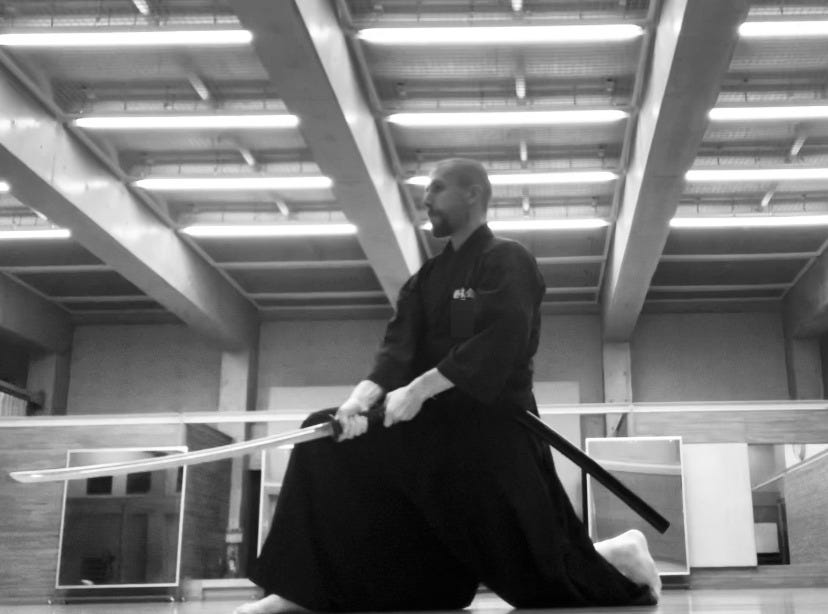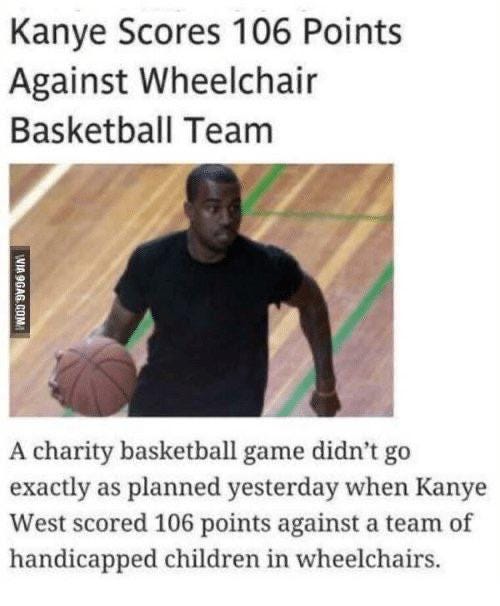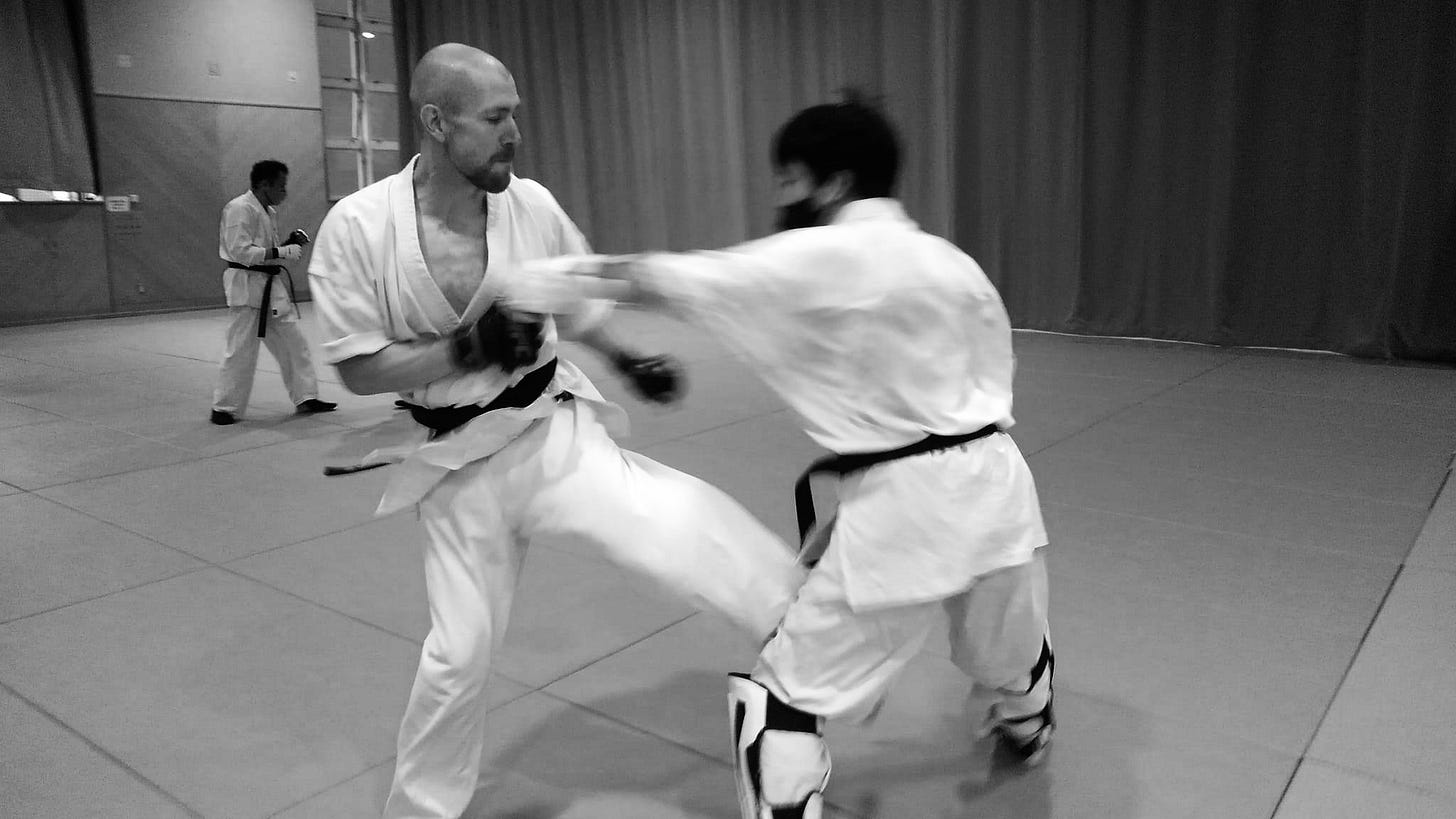Honestly measuring your ability
Sometimes being a hybrid has its advantages
I have quite a few hobbies. I practice martial arts (karate and iaidō), I run (taking part in races from 5k to ultra distances), I write this blog, I hike, and I like to read. When it comes to some of my hobbies, there’s no competition involved (I don’t read competitively), so I just engage with them for the joy of doing so. For other hobbies like martial arts, and running (maybe blogging too), there is an element of competition, and wherever the potential for competition comes up so does the desire for some kind validation (even if that validation comes from within).
I can be quite a competitive person (most men are), and as such, I don’t like to be in a position where I’m considered to be incompetent at something. I want to be seen as a good karate practitioner, a good swordsman, a good runner, and a good writer. But who decides what “good” is?
In this article I’d like to take a look at measuring how “good” we are at things, and why I think it’s important to be honest with ourselves about where we are.
Objective measurements
As of writing this, my personal best time for running a 5K is 19:16. Some people might consider that fast, others might consider it not so fast. But regardless of the subjective opinions people might have about whether 19 minutes 16 seconds is a fast 5K or not, my personal best time is 19 minutes 16 seconds.
Recently I don’t do a lot of weight lifting, but when I did I was deadlifting about 170-180 kg (375–396 lbs) and bench pressing 120 kg (265 lbs). Regardless of how you feel about those weights I can put a number to the amount of weight I could lift.
The thing about running and weight lifting is that it’s very easy to objectively measure things. You can make arguments about people’s running form if you like, but regardless of form, the time from point A to point B can be measured and the form doesn’t matter.
When it comes to weight lifting, the form is a bit more important for deciding whether a lift has been completed or not. I’ve seen videos of people loading every single plate in the gym onto a leg press machine, moving the weights by a few millimeters and then walking away thinking they just lifted a bus…and not putting the weights away. In my opinion, as long as the full range of motion is gone through then it counts, even if the form needs a bit of work.
Note: Bad form may lead to injury. But if you pick up 200 kg and throw your back out doing so, you still picked up 200 kg. Not great for longevity, but it’s something.
Subjective measurements
A while ago I wrote an article called the value of rank in the martial arts economy. In that article I describe some of my experiences with achieving rank in martial arts. Some styles require extreme levels of physical conditioning to get a grade, others require a brief demonstration showing perfect technique. But the thing that unites martial arts ranks is that they are largely subjective.
According to X sensei, or Y organization, I achieved my rank by fulfilling the requirements of a test.
When you are being judged on form it can be especially subjective. Many years ago when I did my 全空連 (Zenkuren : All Japan Karate Federation) shodan test, I was judged by a panel of instructors from different styles. I was a Wadō Ryū practitioner at the time, and when I performed my kata the Shotokan, Shito Ryu, and Goju Ryu panelists thought my kata was fine but the Wadō Kai panelist was less impressed (probably because I was from a different Wado organization). But I passed, so that’s what’s important.
Although there are some subjective hoops to jump through, some gradings require you to do objectively measurable things such as bench pressing a certain amount of weight (as I needed to do for my Yūshinkai grade). However, there are also some things that need to be done which exist in a grey zone of subjectivity and objectivity…such as sparring matches. I say these things are a grey zone because they require you to be measured against others.
Measuring yourself against others
I’m very much of the belief that measuring yourself against others is the thing that causes the most turmoil. This can come in the form of thinking you aren’t as good as you are by selling yourself short, or thinking that you are better than you are by “crushing the weak.”
Selling yourself short
I started running in August 2020, and since then I’ve been entering races here and there. On small races like parkruns, sometimes I do quite well (I’ve come in 1st in a few of these), but in larger races I’m in the sort of slow/fast category, where I’m much quicker than most people my age but I get absolutely smoked by the elites.
On times when I do well I sometimes put it down to, “I only did well because the really fast people didn’t show up today.” This is a bit of a self destructive attitude to have (and I also need to stop doing it to myself).
Realistically, if Eliud Kipchoge or Kelvin Kiptum show up to my local parkrun, even the guys I consider to be “the really fast people” would get absolutely destroyed. But so far those guys haven’t turned up to my parkrun for some reason.
The way that I realistically think of races is that a race only involves the people that turn up on that day and is a reflection of their condition on that day. Sometimes I beat people who are ‘faster than me’ on race day because I’m in better condition on that day. Sometimes I’m beaten by people who are ‘slower than me’ on race day because my condition is bad. That’s just life.
Don’t sell yourself short.
Crush the weak! (Don’t actually crush the weak)
I know that this story is not real, but a meme I saw that never fails to get a laugh out of me is the time that Kanye West scored 106 points in a basketball game against handicapped children in wheelchairs.
This is of course a joke, but if this were real no one would respect Kanye for destroying a team of handicapped children in wheelchairs that have zero chance of competing with him.
I’ve been doing martial arts continuously since 1999. Am I the best fighter in the world? No. Nor do I claim to be. But I do know that I’m better than most at martial arts, and there are many people who I spar against that can’t physically do any damage to me.
For me to have meaningful competition with someone I need to be sparring with someone at a similar level to me. Not the same grade. The same level. If I’m sparring someone of similar height, weight, and age to me but with no martial arts experience, there’s no glory in me crushing them during sparring. Likewise if I spar someone who is a much higher grade than me but is much physically weaker than me. There’s no glory in besting someone in a sparring match under those conditions. (Especially if they would destroy me if they were in their prime).
If you are deliberately going out and wrecking people who you know are weaker than you in order to reap rewards then there’s nothing to be respected about that. Some would even consider that theft. (See this article about a BJJ blue belt who won gold in the European championships by entering the beginner division).
When you do martial arts, it’s important for you to realize where you level is in comparison to to your opponent/partner and respond appropriately. In my article, iron sharpens iron, I discuss why I enjoy training with people who are at my physical level because it allows us to bring out the best in each other in a way that can’t be achieved when you are training with people who are a much higher (or much lower) level.
Martial artists especially need to be mindful of this. There can be a lot of ego involved. There is a tendency to feel big and powerful when you absolutely crush an opponent. But if you are absolutely dominating an opponent maybe you are fighting someone who is too weak for you and you should probably be looking for stronger opponents.
Note 1: Like races, competitions are reflections of the people who turn up on the day and the condition they are in. Sometimes we crush. Sometimes we are crushed.
Note 2: Being able to absolutely dominate is an aim of self defense. Let’s leave the self defense aspect aside for the purpose of this article.
Honesty in all things
If I were to give an honest assessment of where I am as an athlete, I can list up objective things like my race times and the amount I can lift, subjective things like my martial arts ranks, and how I compare against others by listing my competition results.
If I only enter races I know I can win and then claim I’m a good runner because I win a lot of races then it isn’t being honest. Likewise with martial arts, if I put on a white belt, only enter tournaments I know I can win, then strut around like I’m awesome because I won some competitions then it isn’t being honest.
Being honest about your goals to both yourself and others is important. If it’s your goal to simply be a better fighter than most, or a better runner than most then that’s totally fine. But if you only fight people you are obviously stronger than, and run with people you are obviously faster than, it’s probably best to acknowledge that you are the big fish in a small pond.
Final thoughts
I like being able to measure things. It keeps me grounded. Before I started running, my main physical activity was martial arts. Because tests in martial arts are very subjective I sometimes wondered if I was any good. But when I got into things that were more measurable I could put an objective time to things. I can cover X distance in Y time. I can lift Z weight. For my age, that’s generally above average. Which is cool, because I know exactly where I am with these things. And knowing that I’m at least above average at these things gives me the internal validation I need.
My martial arts training is still difficult to measure but I’m ok with that. Not everything needs to be measured with 100% accuracy. I’m probably a better karate-ka than most, and probably a better swordsman than most. I’d probably get wrecked if someone elite turned up to training, but I’d also get wrecked if Kipchoge turns up to my local parkrun. So I’ll just live in the moment and keep doing my best to stay on the path and stay honest.
Oh, and I mentioned earlier that I want to be seen as a good writer. An objective measurement of how good I am at writing is the number of subscribers I have on Substack. So if you aren’t subscribed yet please consider adding to my objective measure. ;)
Thank you very much for reading. If you enjoy my work please share it with someone you think would also enjoy it.
If you aren’t subscribed, please sign up to keep up to date.
If social media is more your thing I’m active on Facebook, Twitter, and Instagram.
And if you are feeling generous but don’t want to commit to a monthly subscription, you can send a small donation to my Buy me a coffee page below.
Osu!









I'm... "naturally" very self deprecating, and often don't have a good assessment of my techniques in budo. I justify it by telling myself that I'm being humble about where I am at performing waza that I've learnt. This is why I view feedback especially from those I respect like the seniors at my club and my sensei as invaluable and uplifting. I'm learning not to sell myself short so much, and learning to be comfortable with where I am, knowing I am at a level where I am good enough at this point in time, but also aware that I can be better and aspire to be like other well versed practitioners, and given time in consistent training, I may yet get there..
thought provoking indeed the paradigm for self evaluation becomes more complicated as you get older at 65 your technique may be above average but physical performance is now becoming a factor to consider,i.e. can I go the distance?